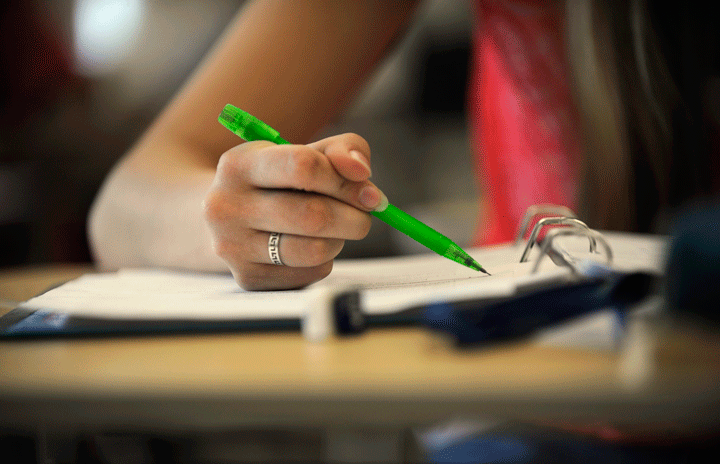Canadian students are falling behind their international peers in mathematics and according to a new report, one way to fix that is to move away from the “fad” of discovery-based learning.

A C.D. Howe report released Wednesday suggests Canadian schools should revert back to traditional ‘memorize your multiplication tables’ arithmetic to reverse slumping math scores.
The report, written by University of Winnipeg math professor Anna Stokke, suggests the drop in scores is, in part, due to the prevalence of discovery-based learning where students are taught with minimal guidance from the teacher, open-ended questions, frequent use of hands-on materials, and minimal worksheet practice.
The method deprioritizes memorization of multiplication tables and repeated practice of math problems. But Stokke said the evidence suggests those techniques work and help students develop their long-term memory of math facts rather than rely on strategies.
The ability to imprint multiplication tables or long division into your long-term memory is important, Stokke argues, but not taught enough.
Using discovery-based strategies, Stokke argues in the report, can overwhelm students’ working memories as they try to implement the strategies rather than quickly recalling facts about math, like 7 x 8 = 56.
“Relying on ad hoc strategies to calculate the number facts involved, however, puts the student at an extreme disadvantage relative to one who can quickly recall a fact such as 7 × 8 = 56, since working memory becomes overburdened with the strategies involved to compute basic number facts,” the report reads.
But discovery-based learning does have its supporters. Leslie Francis Pelton, the chair of the department of curriculum and instruction at the University of Victoria, told the CBC in February that relying on direct teaching alone is “not enough to really be literate in mathematics.”
“There has to be an understanding of what it actually means and that’s where the conceptual comes in,” she said. “Sometimes divorcing the mathematics and just making it strictly the operations and the numbers is actually doing the kids a disservice.”
The report also pushes for an overhaul of math curricula in Canada and more math-training for elementary school teachers. Stokke argues they should have to complete two university-level math courses and a math exam on the content they’re teaching before they teach it.
“Then they will actually know the content,” she said. “Then we can be sure they know the content they’re required to teach.”
Stokke has been involved in a push for “back to basics” math curriculum across Canada and says discovery-based learning is prevalent across Canada under various names including inquiry learning, experiential learning and problem-based learning.
There have been growing calls to reverse that trend in several Canadian provinces, including a petition signed by 17,575 people in Alberta, which was presented to the former PC government calling for “back to basics” math education.
A similar petition took root in British Columbia urging the provincial government to make “common sense math” the focus of the curriculum.




Comments